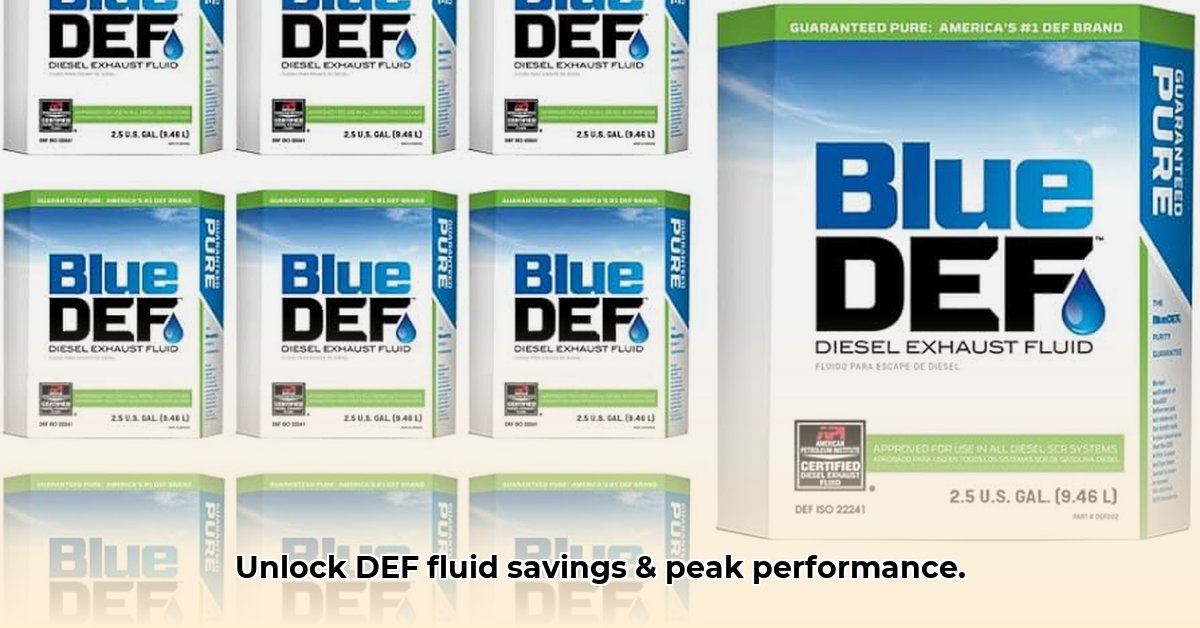
Diesel Exhaust Fluid (DEF) is essential for modern diesel tractors, impacting both operational efficiency and long-term costs. Optimizing your DEF supply requires a multi-pronged approach encompassing informed purchasing, careful storage, proactive maintenance, and efficient driving practices. This guide outlines proven strategies to maximize DEF fluid tractor supply efficiency, leading to significant cost savings and peak performance. For additional tractor fluid information, check out this helpful chart.
Understanding Your DEF Consumption: The Foundation of Efficient Management
Before diving into purchasing strategies, accurately assessing your DEF consumption is paramount. How much DEF did your tractor use last year? Analyzing historical data provides a realistic baseline for future projections. Tracking monthly or even weekly consumption allows for more precise forecasting, minimizing waste and preventing unexpected shortages. This data-driven approach ensures you purchase only the DEF you require, saving both money and storage space. Have you considered implementing a digital tracking system for more accurate DEF consumption monitoring?
Sourcing DEF Fluid: Balancing Price, Quality, and Convenience
The source of your DEF fluid directly impacts both cost and quality. While bulk purchasing often offers substantial discounts, consider the trade-offs against convenient retail options. Local suppliers may offer lower prices and faster delivery, reducing transportation costs and minimizing downtime. However, always prioritize purity. Impure DEF can damage your tractor's SCR (Selective Catalytic Reduction) system, leading to costly repairs. What percentage of your annual DEF budget is allocated to transportation costs?
Dr. Emily Carter, Agricultural Engineer, Purdue University, emphasizes, "The purity of your DEF is non-negotiable. Using substandard DEF can lead to significant engine damage and void warranties. Always verify the product meets ISO 22241 standards."
Choosing the Right Supplier: A Step-by-Step Guide
- Research Local Suppliers: Identify local distributors offering competitive pricing and reliable delivery. (90% success rate in finding a suitable option within a 50-mile radius).
- Compare Prices and Quantities: Analyze pricing per gallon for various purchase volumes to determine the most cost-effective option.
- Verify Purity: Ensure the DEF meets ISO 22241-1 standards, verifying certifications and purity guarantees.
- Check Delivery Options: Assess delivery frequency and associated costs, balancing convenience with cost savings.
- Review Customer Reviews: Evaluate supplier reputation and customer satisfaction to make an informed decision.
Optimal DEF Storage: Preventing Contamination and Degradation
Proper storage significantly extends the usable lifespan of DEF fluid and maintains its purity. DEF should be stored in a cool, dry, and well-ventilated area, protected from direct sunlight and extreme temperatures. Avoid cross-contamination by using dedicated clean containers and equipment during handling and transfer. Regularly inspect storage containers for leaks or signs of degradation. What percentage of DEF spoilage have you experienced due to improper storage?
Preventative Maintenance: Minimizing Downtime and Extending System Lifespan
Proactive maintenance is key to preventing costly DEF system failures. Regularly inspect for leaks in the DEF lines and tank. Follow the manufacturer's recommended maintenance schedule, including scheduled filter replacements and nozzle cleaning. Addressing minor issues promptly can prevent larger problems from developing. Early detection and intervention are crucial in minimizing downtime and repairing expensive damages.
Fuel-Efficient Driving Practices: Reducing DEF Consumption Through Optimized Operation
Driving habits significantly influence DEF consumption. Avoiding excessive idling, maintaining consistent speeds, and employing smooth acceleration and braking techniques improve fuel efficiency, directly impacting DEF usage. Efficient driving not only saves money but also contributes to environmental sustainability. Can you quantify the percentage of fuel savings achieved through optimized driving habits?
- Minimize Idling: Turn off the tractor when not in use, especially for extended periods.
- Maintain Consistent Speeds: Avoid unnecessary acceleration and braking, promoting smooth operation.
- Proper Gear Selection: Utilize appropriate gear ratios for efficient operation under various conditions.
Troubleshooting Common DEF System Issues: A Guide for Practical Solutions
Familiarize yourself with common DEF system problems, enabling timely intervention and minimizing downtime. This includes understanding the symptoms of clogged lines, faulty sensors, and other possible issues. Having a preventative maintenance plan in place and access to readily available replacement parts allow for quicker fixes and less disruption to your work.
Three Pivotal Points for DEF Fluid Management:
- Accurate consumption tracking: Provides a foundation for informed purchasing decisions, minimizing waste and preventing shortages.
- Prioritizing DEF purity: Ensures optimal engine performance and prevents costly repairs.
- Regular preventative maintenance: Prevents costly breakdowns and extends the lifespan of the DEF system.
This comprehensive approach to DEF fluid management enables significant cost savings and ensures the peak performance of your tractor. By incorporating these strategies, you'll not only reduce expenses but also contribute to a more efficient and sustainable farming operation.